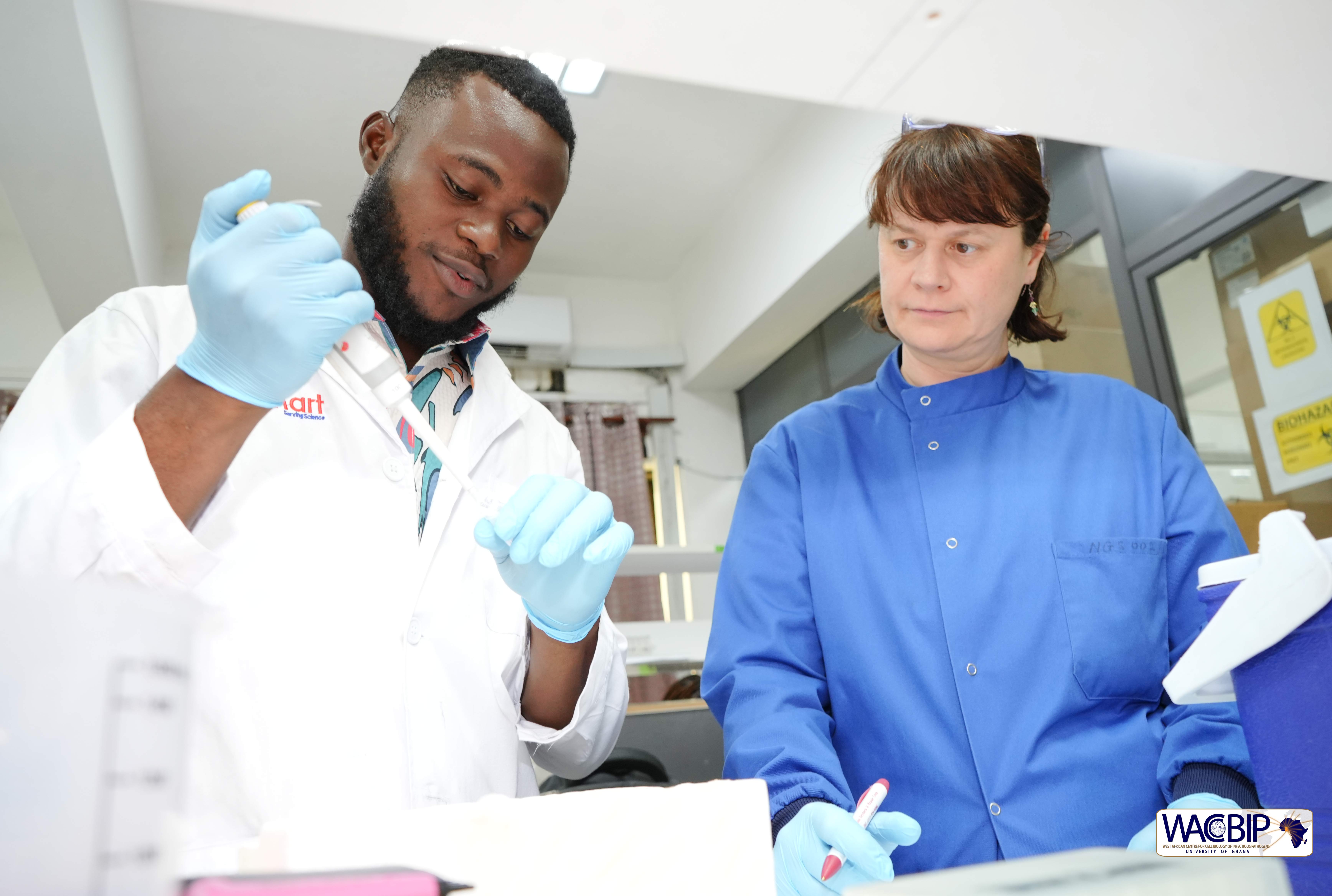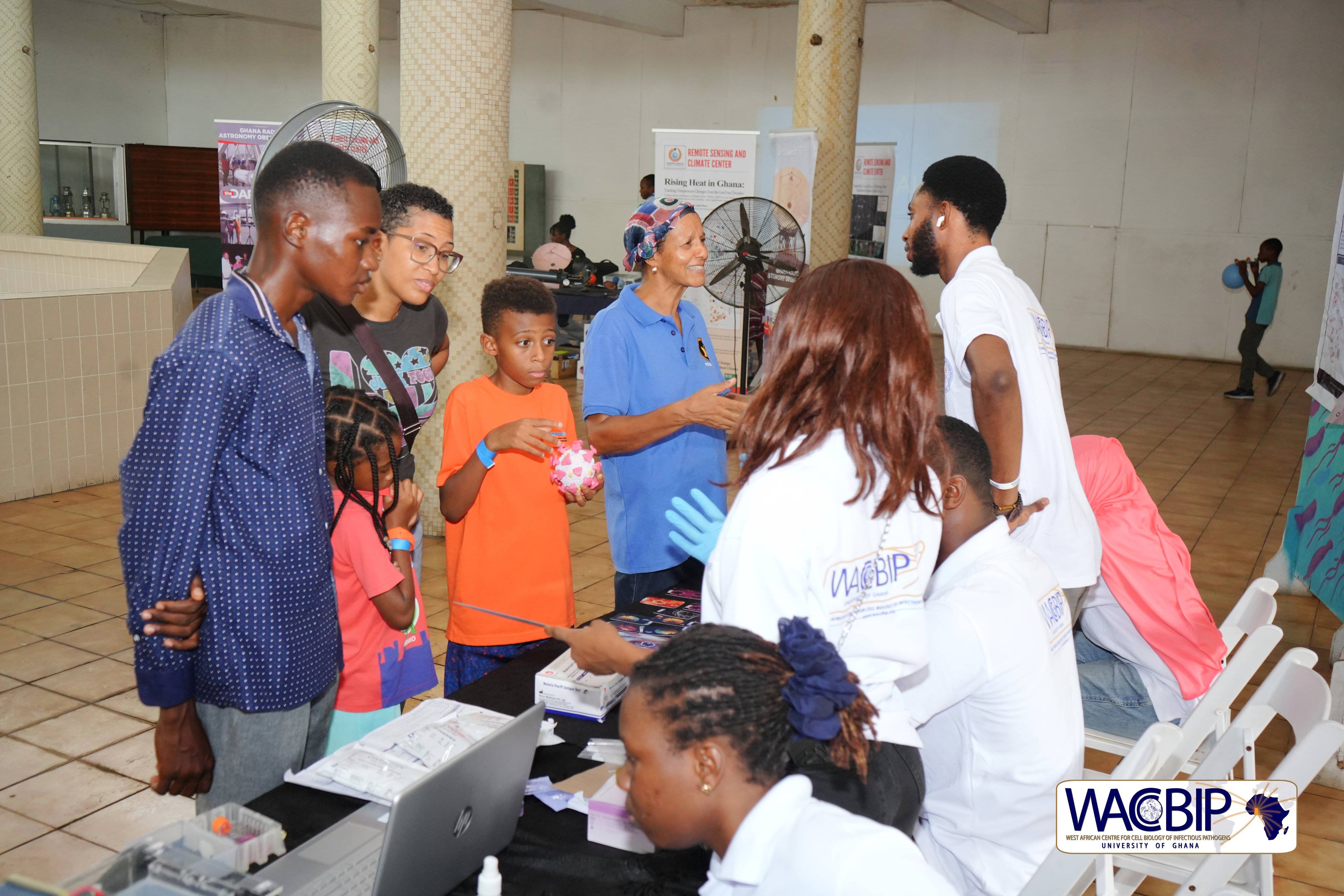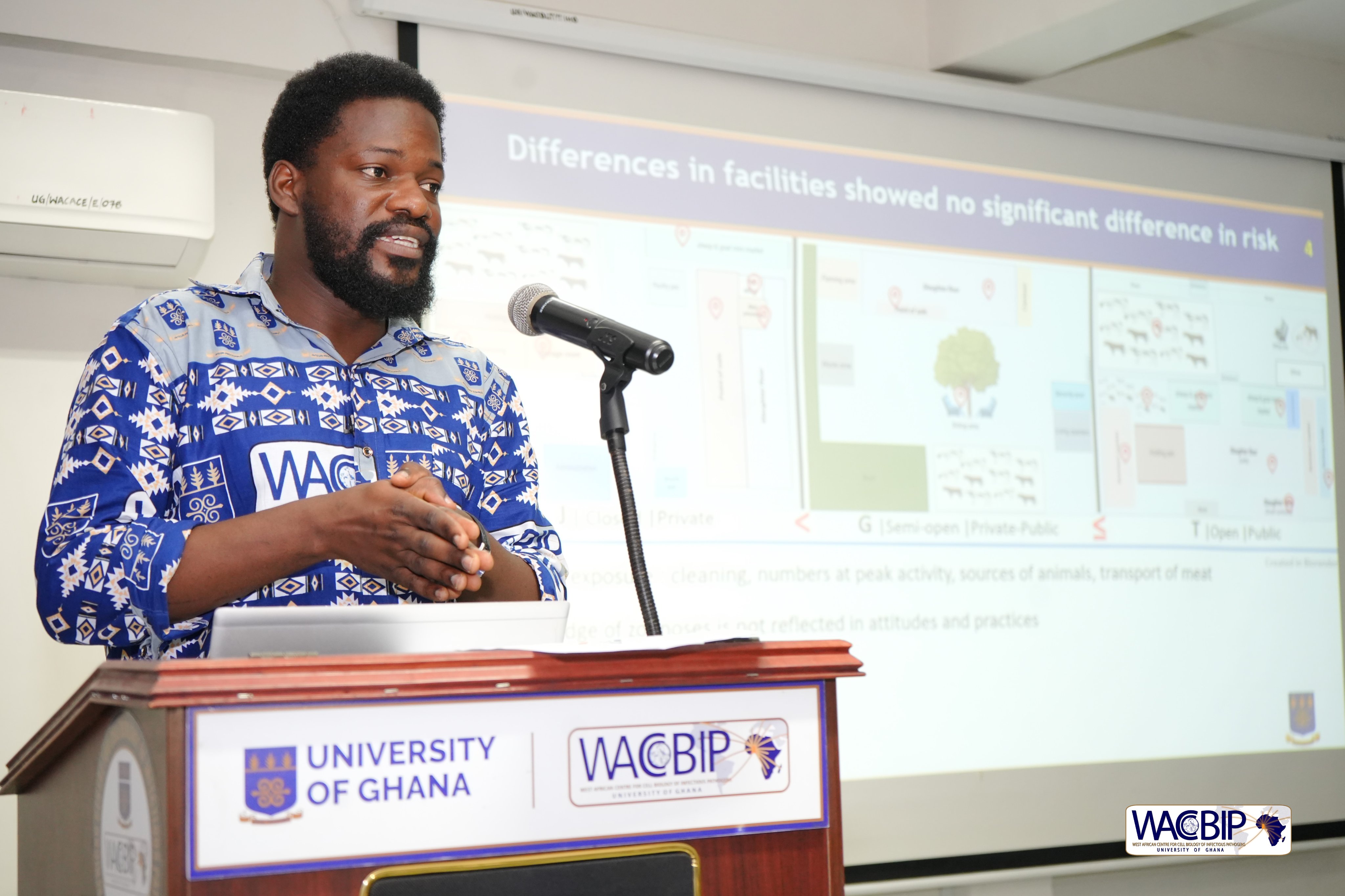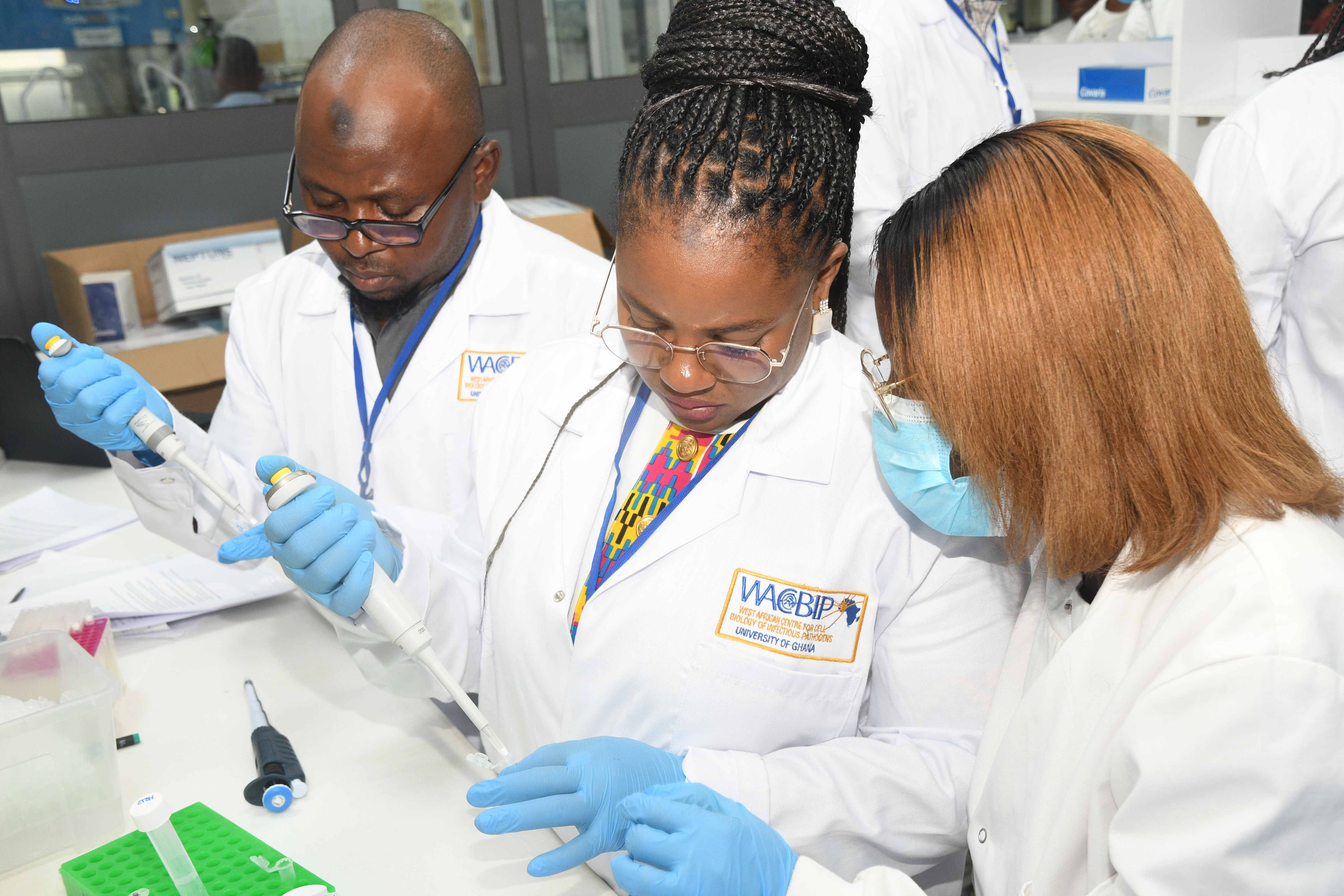Our Operations
WACCBIP seeks to address the double threat of infectious diseases (IDs) and non-communicable diseases (NCDs) by providing advanced molecular-based research and training to build the skills necessary for effective disease surveillance and drug resistance monitoring, development of new diagnostic tools, drugs and vaccines, and characterisation of genetic mutations associated with NCDs.
We seek to contribute towards building the critical mass of biomedical scientists and health sector professionals that Africa needs to rapidly diagnose, effectively treat, and sustainably control both IDs and NCDs by establishing targeted programmes that will add value to our trainees and bridge the gap between research and industry.
Our Mandate
Training
As part of our core mandate, we provide training in cell and molecular biology of infectious pathogens. We have put together quality training programmes targeted at different groups of seasoned and upcoming scientists. We offer:
- Short-term programmes (two- to four-week-long workshops/courses) targeting professionals in the health delivery sector (including physicians, pharmacists, and senior laboratory personnel) to improve their knowledge of disease pathogenesis and modern methods of diagnosis and treatment;
- Medium-term programmes (three- to six-month-long research internships) for trainee biomedical scientists and hospital laboratory technologists, to provide experiential training on research design, specialised techniques, and team building skills; and
- Long-term programmes (Master’s, PhD and Post-doctoral), targeting career biomedical scientists in Universities and health research institutions. In addition to the existing programmes at the Department of Biochemistry, Cell and Molecular Biology (MSc/MPhil Biochemistry, MPhil Molecular Biology, and PhD Biochemistry), two new specialised programmes were introduced in the 2014/2015 academic year (MPhil and PhD in Molecular Cell Biology of Infectious Diseases). These two new programmes are sponsored by World Bank funds and run by WACCBIP. In addition, funds were sourced from the Wellcome Trust to support a postdoctoral programme and an additional PhD programme in Human Genetics to complement the Pathogen Biology programmes.
Research
The research mission of WACCBIP is to conduct cutting-edge research and innovation to guide development of new approaches to disease diagnosis, prevention, and control.
Having established a world-class research environment with wide ranging applications and technology platforms including flow cytometry, next-generation sequencing, protein expression, advanced microscopy and imaging, high-performance computing, and bioinformatics and data management, the Centre is now well-positioned to conduct cutting-edge research into an expanded range of diseases.
We aim to drive three major objectives:
- Exploit pathogen biology for developing novel disease diagnostics, vaccines and drugs;
- Determine the molecular bases for differences in host susceptibility to IDs to guide better disease prevention and management; and
- Identify genetic markers to inform molecular diagnostic approaches for early detection of NCDs
For each of the priority diseases/pathogens, research projects are organized into five themes:
- biomarkers and molecular diagnosis,
- disease pathogenesis and immunity,
- pathogen and host genomics and host-pathogen interactions,
- molecular epidemiology for disease surveillance and drug resistance monitoring, and
- target discovery for drug and vaccine development.
Our Core Facility
WACCBIP has developed a Core Facility to serve as a hub for collaboration among scientists in the sub-region with access to modern research equipment for analysis of samples and other services. The WACCBIP Core is organised into six technology platforms:
WACCBIP owns a BD LSR Fotessa Flow Cytometer (X-20 Cell Analyser), which is equipped with four laser lines (488nm, 405nm, 561nm, and 640nm) and is capable of detecting 18 parameters; 2 scatter and 16 fluorescent detectors.





